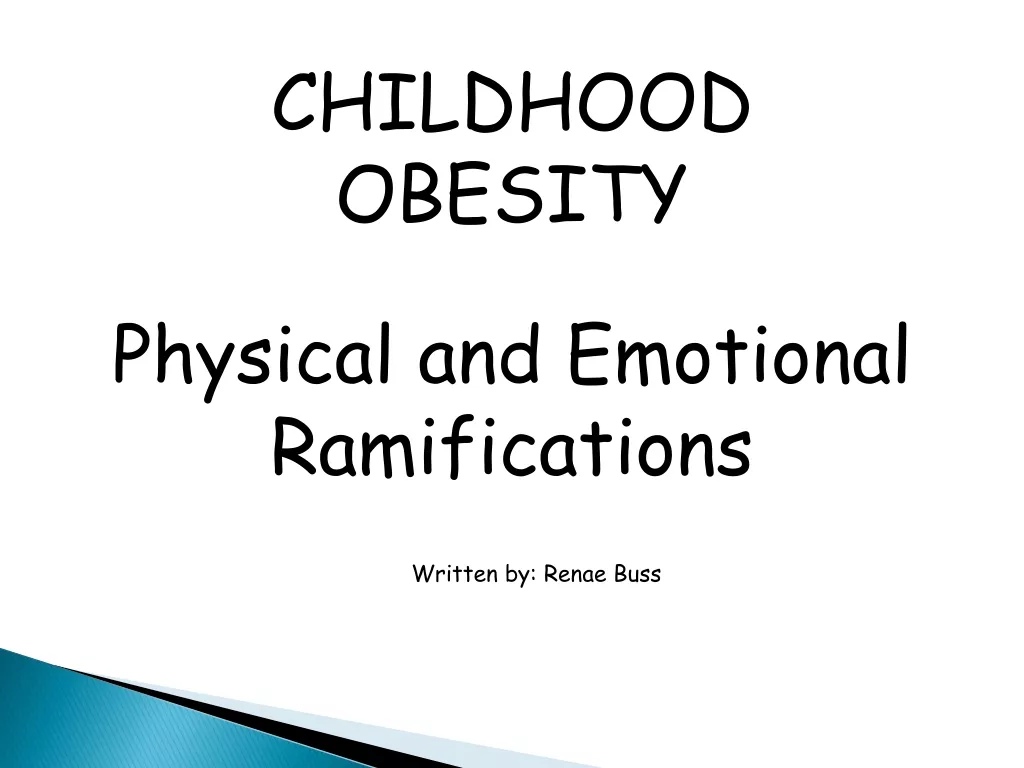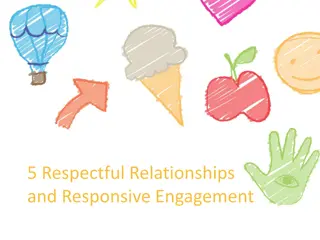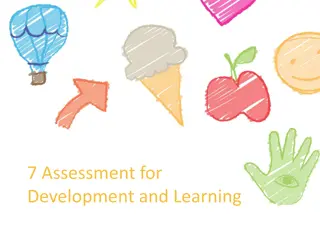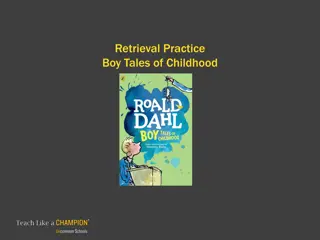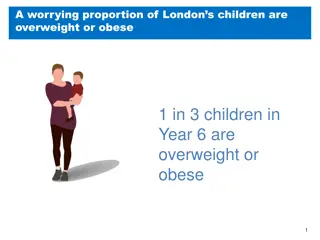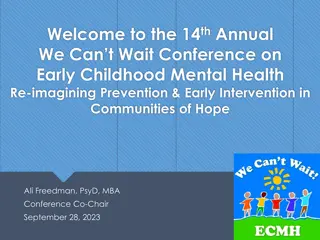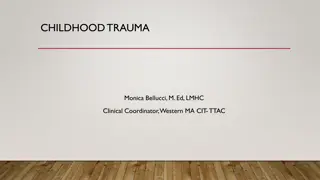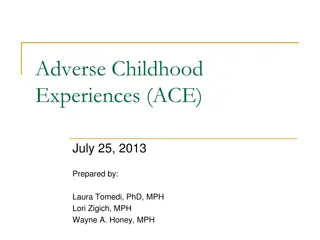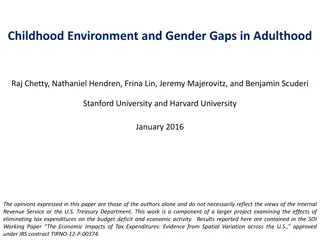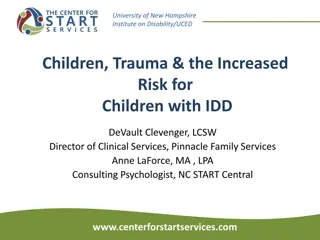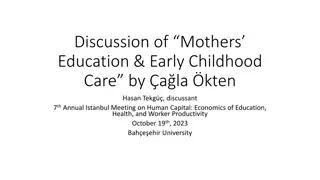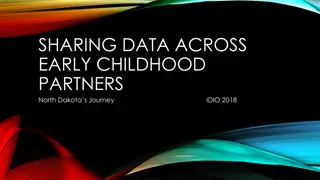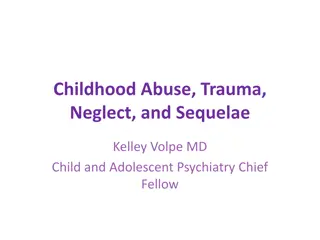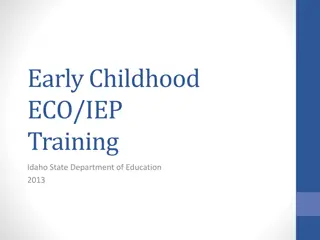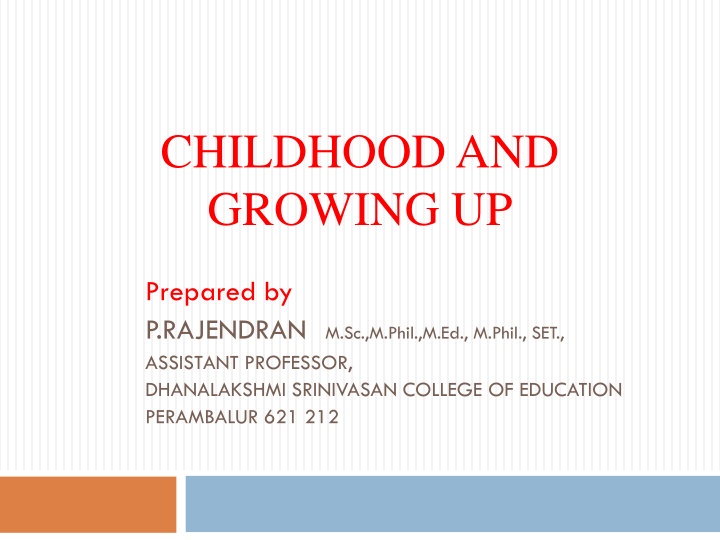
Childhood and Growth: Physical, Cognitive, and Moral Development
Delve into the world of childhood and growing up with insights on physical, cognitive, and moral development processes. Explore the key factors influencing social and emotional growth, along with Piaget's theory and developmental stages. Enhance your understanding of the crucial stages of human development through this comprehensive guide.
Download Presentation

Please find below an Image/Link to download the presentation.
The content on the website is provided AS IS for your information and personal use only. It may not be sold, licensed, or shared on other websites without obtaining consent from the author. If you encounter any issues during the download, it is possible that the publisher has removed the file from their server.
You are allowed to download the files provided on this website for personal or commercial use, subject to the condition that they are used lawfully. All files are the property of their respective owners.
The content on the website is provided AS IS for your information and personal use only. It may not be sold, licensed, or shared on other websites without obtaining consent from the author.
E N D
Presentation Transcript
CHILDHOOD AND GROWING UP Prepared by P.RAJENDRAN ASSISTANT PROFESSOR, DHANALAKSHMI SRINIVASAN COLLEGE OF EDUCATION PERAMBALUR 621 212 M.Sc.,M.Phil.,M.Ed., M.Phil., SET.,
PHYSICAL GROWTH AND DEVELOPMENT Growth - process of changes -Height -Weight -Speed -Shape -Perception -Emotional control Development Life long process
PHYSICAL GROWTH AND DEVELOPMENT PHYSICAL DEVELOPMENT COGNITIVE DEVELOPMENT MORAL DEVELOPMENT SOCIAL AND EMOTIONAL DEVELOPMENT
Physical Development -basic for all development i.e. infancy 50% child 70% -study of systematic psychological changes i.e. personality, self-concept. Mental Development 1) Thinking 2) Perception 3) Problem solving 4) Construction of concepts.
MORAL DEVELOPMENT -Lives according to socio-moral values moral control -Based on religious thought, self esteem Moral development = religious thought + character Moral development not at birth due to practise development
SOCIAL & EMOTIONAL DEVELOPMENT Key factors in social development: According to Erikson,Maslow,Elias Social development theorist Children have common needs fulfill health adult accept society rules & values
PIAGETS THEORY Believe to think in new & more complex Cognitive development theory Jean Piaget Swiss psychologist(1896-1980) C ENTRAL THEME: o Developmental psychology ability to represent, o Growth of intelligence perform logical operations Schemata Schemes how to perceives the world.
DEVELOPMENTAL STAGES Empiricism gradual acquisition of knowledge through experience Self motivation action
SENSORI MOTOR STAGE Sub stages: Reflex Schema Stage 0-6 weeks -development of reflexes -uncoordinated reflexes Primary Circular Reaction Phase 6 weeks-4 months -Coordinated into simple schemas Secondary Circular Reactions phase 4-9 months -Vision & Prehension -React with objects
Coordination of Secondary Circular Reactions Phase 9 -12 months -Object permanence developed Tertiary Circular Reactions Phase 12-18 months -Discovery of new means to meet goals Beginnings of Symbolic representation 2-7 years - Insight or creativity ,Mental image ,Symbolic world of language.
PRE-OPERATIONAL STAGE learning of language Create good thinking Childs activity: Mental Activity Objects by images & words Words used for symbolic thinking Egocentric Language skills 1. 2. 3. 4. 5.
PRE-CONCEPTUAL STAGE(2-4 YEARS)
CONCRETE OPERATIONAL STAGE
FORMAL OPERATIONAL STAGE Final of the periods of cognitive development Commences at around 11 years of age & continues childhood Characterized by acquisition of ability to think, reason logically reason logically Drawing conclusion
Understands logical proofs Values At adulthood-they understands Philosophy Cognition Moral development(Kohlberg) Psycho sexual development(Freud) Social devlopment(Erikson)
Challenges of Piagetian theory Unpredicted gaps Cognitive domain is bonded on specificity for each other doamin now a days child understands basic principles

